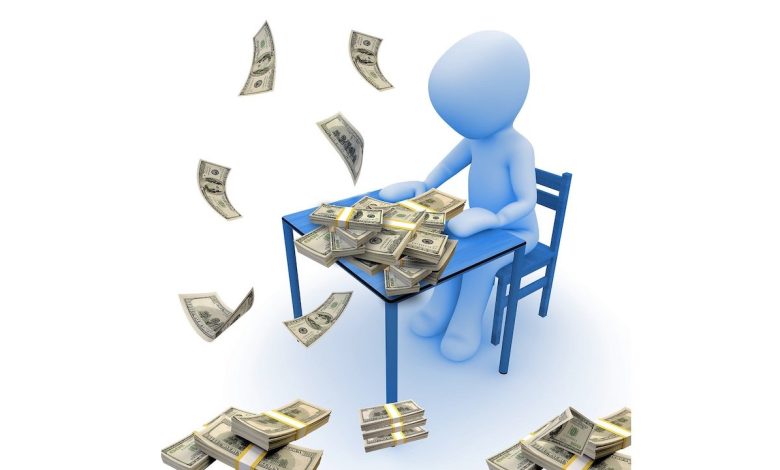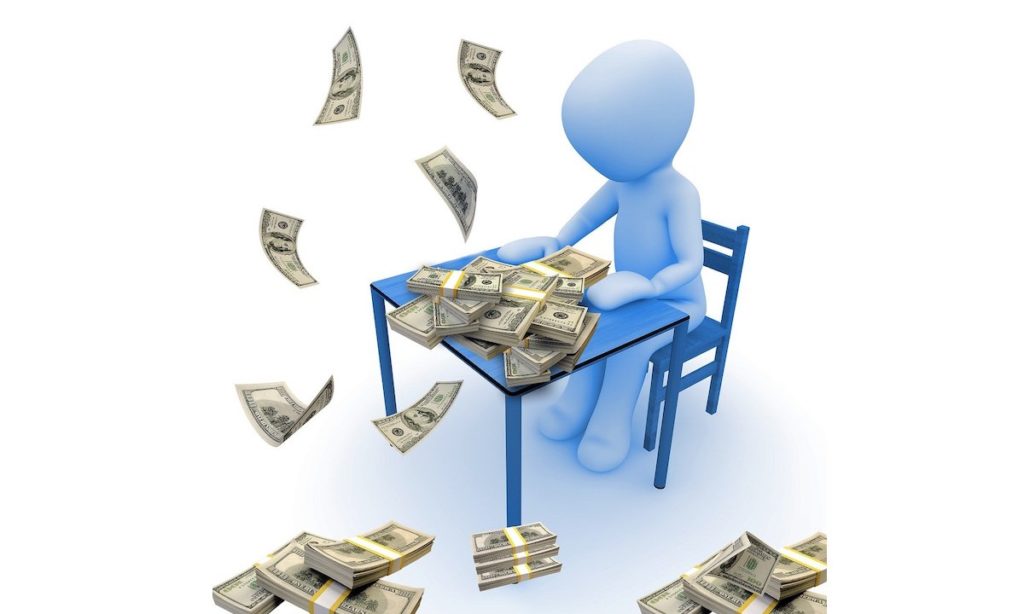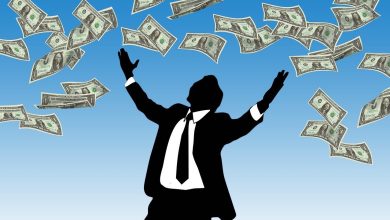“Greedy” Corporations Are Causing Inflation; Or Are They?

Greedy corporations are causing inflation by jacking up prices and enjoying record profits.
This has become an increasingly popular talking point on the political left. Elizabeth Warren has pushed this narrative hard.
And it’s patently absurd.
One simply has to reason through the claim to uncover the absurdity. If corporations can willy-nilly raise prices and enjoy “excessive” profits, why don’t they do it all the time? Did corporations suddenly get greedy in 2021? And why did the Federal Reserve spend a decade fretting about inflation being “too low” as it struggled to hit its 2% target? Was there not enough corporate greed before coronavirus?
It’s pretty clear there has to be something else going on. But corporate greed is a convenient explanation, and the narrative continues to grow because the average American doesn’t understand inflation or basic corporate accounting. That includes a lot of the people writing about inflation in mainstream and left-leaning corporate media.
John Nichols wrote an article for The Nation exposing what he calls “a dirty secret.” He claims the current bout of inflation is caused by corporations “jacking up prices.”
He shared his article with the following tweet.
From Yahoo Finance:
“Amazon Stock Soars 15% After Earnings, Will Hike Prime Membership Fee”
When you hear the word “inflation,” think: corporations jacking up prices to cash in on a pandemic moment in order to amplify and extend excessive profits.
https://t.co/ylJg4JPP1L— John Nichols (@NicholsUprising) February 21, 2022
This is how you say, “I don’t understand inflation” in one tweet.
Nichols’ author page calls him “a pioneering political blogger.” He might be a great writer. And he may know a lot about politics. But he would do well to take an accounting class before pontificating on corporate finance.
I want to look more closely at some of the headlines Nichols uses to prove his “corporate greed” argument. But first, it’s important to define some accounting terms.
Revenue – the amount of money generated from normal business operations. This number doesn’t include expenses. You can report a big increase in revenue but still end up losing money if expenses rise more.
Operating Income – Revenue minus operating expenses such as wages, cost of goods sold and depreciation. This is the profit from business operations. It does not include one-off expenses such as taxes, interest expenses and debt service.
Net Income – This figure accounts for all expenses, including operating expenses taxes, interest, debt service, etc. This number is highly susceptible to accounting manipulation. This number is often reported as “profit.”
Growth – This isn’t a technical accounting term, but it is often bandied about in financial reporting. It generally compares two periods and is expressed in percentage terms. So, you’ll see something like, “XYZ company’s profits grew by 35% last year.” Beware of this kind of reporting because it can be highly deceiving. If a company had a really bad year (say because the government shut the economy down) and then it rebounds the next year, it will show tremendous “growth.” But that’s just because you’re comparing it to a really bad year. When you see percentages, you need to understand the context and know something about the baseline for comparison. Revenue and profit numbers in 2021 will generally reflect solid growth in percentage terms when compared with 2020 when the economy was shut down.
Now for Nichols’ headlines.
Oil giant BP reports highest profit in 8 years on soaring commodity prices.
This headline doesn’t really tell us anything. It could very well be that BP has had low profits or even losses in the seven years prior to this windfall. And what does the headline mean by “profit?” Is it referring to net income? Or operating income? Or something else?
In fact, the oil sector struggled in 2020 when the price of oil tanked to $20 a barrel. BP revenue was $298.8 million in 2018. That plunged to $180.4 million in 2020 and dropped again to $157 million in 2021. BP’s operating income was $16.3 million in 2018. In 2020, BP charted an operating loss of $573,000. It rebounded to $10.5 million last year. In context, BP’s performance last year wasn’t particularly noteworthy.
Simply saying BP had the highest “profit” in 8 years doesn’t really give you any information about the company’s performance or trajectory. In fact, comparisons like this often give false impressions.
Let’s look at some other headlines. I’m not going to get into the weeds of every companies financials as I did for BP, but you get the idea.
Cereal maker Kellogg Co. forecast full-year profit growth above market expectations on Thursday, riding on higher product prices that helped overcome labor strike disruptions and soaring input costs in the fourth quarter.
All this tells us is that Kellogg is going to do better than expected and that the company was able to pass on at least some of its rising costs to its customers. (People like Nichols completely ignore rising costs. It seems like they might want to question why costs are rising as they analyze inflation. I suppose they just assume it’s other greedy corporations gouging these greedy corporations.) Based on this headline, it’s possible that analysts expected below-average growth or perhaps a loss. If the company now forecasts average growth, that would be “above market expectations.” I’m not sure how that is “greed.”
Procter & Gamble’s sales jump as consumers brush off rising prices.
You have to buy toothpaste and shampoo, even if the prices go up. When you see the word sales, it either means the number of units sold, or more likely, revenue. Just because revenue goes up doesn’t mean the company is seeing a “profit.” In fact, P&G’s operating income was down 3% year-on-year in Q4 2021.
McDonald’s to raise prices despite record revenue
This is easy to misread if you don’t understand the accounting terms. If record expenses are higher than the record revenues, that’s not good news. A company will have to raise prices to cover the expenses. Or eventually, go out of business.
Amazon stock soars 15% after earnings, will hike Prime membership fee
Suffice to say, Amazon’s operating income was down 49.66% year-on-year in Q4. The company did fantastic in 2020 when everybody was locked in their houses spending stimulus money on Amazon. But the tide appears to be turning. Shipping costs are rising. Amazon’s future prospects are not particularly bright.
And this raises an important point about corporate finance. You have to be forward-looking. A company can report record “profits” today even as its business is on the verge of tanking.
The bottom line is that none of these headlines really proves greedy corporations are driving inflation.
That’s because they’re not.
In fact, producer prices have risen faster than consumer prices. That means businesses have only passed on some of their higher costs to consumers. If anything these “greedy” corporations have allowed consumers to gouge them.
Progressives like Nichols and those who promote big government have a vested interest in shifting the blame for inflation because the real culprit is government. As economist Daniel Lacalle explained, “Inflation is not a coincidence, it is a policy.”
And as economist Milton Friedman put it, “Inflation is always and everywhere a monetary phenomenon.”
It is ultimately caused by an increase in the money supply. In fact, that is inflation, properly defined. If you have more dollars chasing the same amount of goods and services, you will see a general rise in prices.
The governments exacerbated the situation during the pandemic by shutting down the economy. That contracted supply. In the meantime, the Fed printed money and the federal government passed it out in the form of stimulus. You had more dollars chasing fewer goods and services. The inflation we’re experiencing today was entirely predictable.
The truth is the federal government needs inflation. It depends on Federal Reserve money printing to support its borrow and spend budgeting strategy. Without the Fed’s inflationary activity, the government couldn’t finance its out-of-control spending habit. But politicians don’t want you to know that they are levying an inflation tax on you, so they perpetuate all kinds of myths about inflation to try to make you feel better about it.
The average person is particularly susceptible to the greedy corporation myth. People generally distrust big corporations and they don’t understand financial accounting. People like Nichols prey on this fact to promote their politics.
There may well be some corporations taking advantage of the current economic environment to pump up profits. But that does not explain the 7.5% CPI. If you hear somebody blaming inflation on greedy corporations, it indicates they don’t understand inflation. Or they’re lying to you.
Call 1-888-GOLD-160 and speak with a Precious Metals Specialist today!
Buka akaun dagangan patuh syariah anda di Weltrade.
Source link







